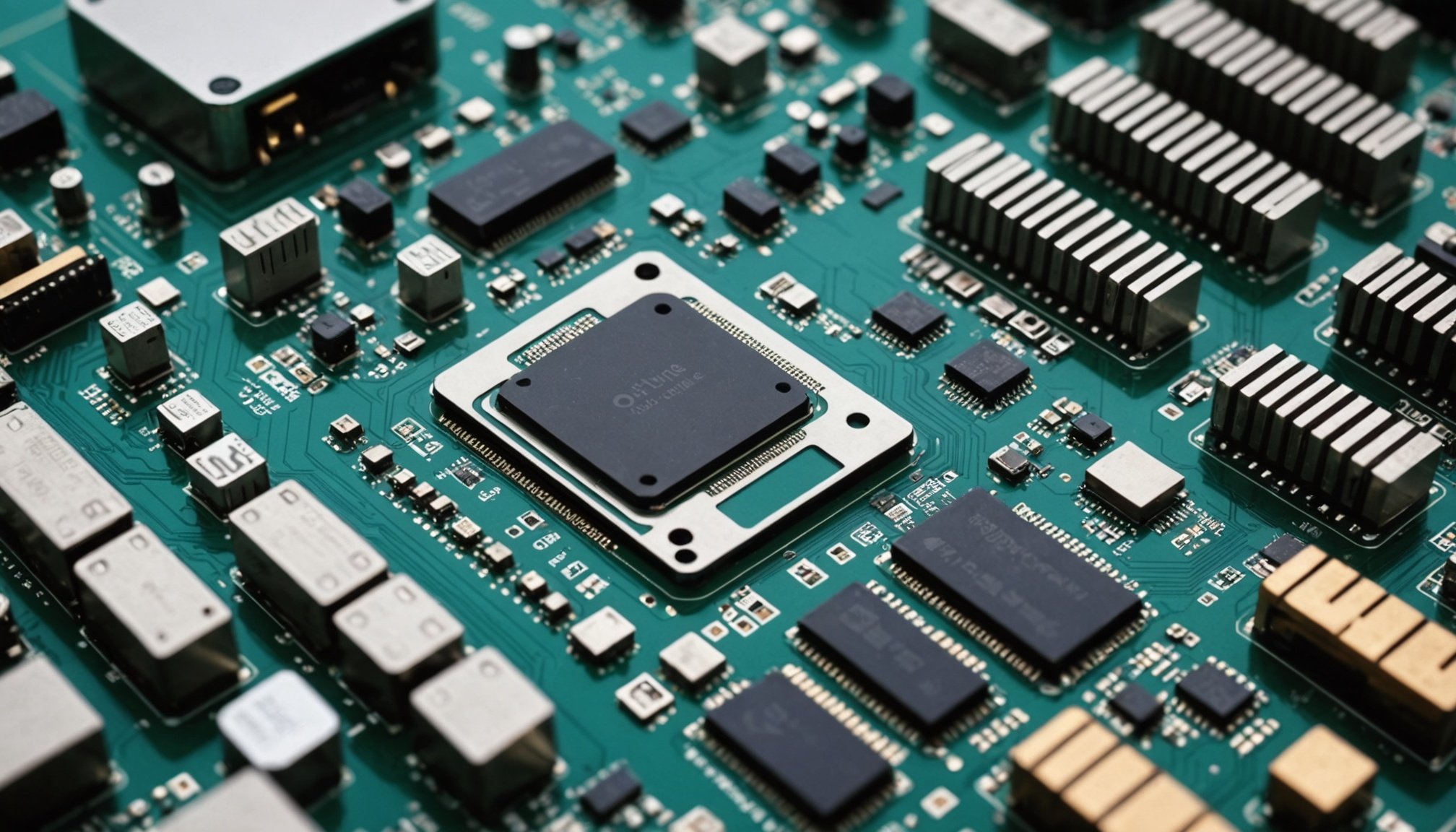Key Emerging Technologies Shaping UK Computing Hardware
Emerging technologies UK are dramatically influencing the future of UK computing hardware innovation. A standout development is the UK’s strides in quantum computing advancements, with research institutions pushing boundaries in qubit coherence and error correction. These breakthroughs promise exponentially faster problem-solving capabilities compared to classical computers, positioning the UK as a leader in this field.
Another trend in computer hardware is the rise of AI-specific processors. These chips are purpose-built to accelerate machine learning tasks, proving essential for real-time data analysis and autonomous systems. Coupled with edge computing innovations, they enable devices to perform complex computations locally, reducing latency and dependence on cloud infrastructure—key for IoT and smart cities across the UK.
Have you seen this : What Are the Latest Innovations in UK Computing Hardware and How Are They Impacting Users?
Additionally, the integration of neuromorphic and photonic computing technologies represents a paradigm shift. Neuromorphic chips mimic neural networks, enabling energy-efficient learning and pattern recognition. Photonic computing uses light to transmit data, promising ultra-fast processing speeds and low heat generation. Together, these emerging technologies UK are driving novel architectures that will redefine computing performance and efficiency in the UK market.
Major UK-Based Projects and Collaborations
The UK is actively engaged in several government computing initiatives aimed at advancing hardware research. These projects benefit from substantial public investment, fostering innovation in next-generation computing. For example, government-funded programs prioritize high-performance computing architectures, quantum technologies, and energy-efficient chip designs. Such initiatives demonstrate a commitment to strengthening domestic technology capabilities.
In the same genre : What Essential Features Should You Look for in a Computer Hardware Purchase?
Universities across the UK contribute significantly through innovation hubs and research consortia. These UK tech projects frequently involve collaborations between academia and industry, facilitating knowledge exchange and accelerating hardware development. Leading institutions serve as catalysts, connecting experts to industry partners and fostering an ecosystem focused on pioneering breakthroughs.
Furthermore, strategic industry collaboration in the UK enhances resources and expertise. Partnerships between private companies and research organizations leverage both funding and practical insights, driving projects from conceptual design toward commercialization. Such collaborations reflect a robust model where public and private sectors align objectives to maintain competitive edge in global computing innovation. Together, these multifaceted efforts ensure the UK remains at the forefront of emerging computing technologies.
Expert Predictions and Industry Leader Insights
Technology experts in the UK hardware sector predict significant advancements over the next decade. Expert opinions UK hardware consistently highlight the integration of AI with everyday devices as a pivotal trend. Leading manufacturers emphasize that improving device intelligence will reshape how consumers interact with technology, making systems smarter and more intuitive.
Academic experts analyzing the UK tech future suggest that hardware innovations will not only focus on speed and power but also on energy efficiency and sustainability. This aligns with growing environmental concerns and regulatory pressure across industries. Their forecasts indicate that breakthroughs in materials science could lead to lighter yet more durable components, accelerating development in sectors like wearable tech and smart home products.
R&D directors provide crucial insights into emerging disruptive computing trends such as quantum computing and neuromorphic chips. These technologies promise to revolutionize processing capabilities, enabling complex problem-solving at unprecedented speeds. Industry leader forecasts underline that UK companies investing early in these areas may gain a competitive edge globally, positioning themselves at the forefront of the next wave of hardware innovation.
Anticipated Timelines and Future Milestones
In the evolving landscape of the timeline UK computing, the next decade promises a steady stream of hardware innovations. Industry experts forecast significant advancements starting within the next 3 to 5 years, where near-term breakthroughs will focus on enhancing energy efficiency and processing speed. Current prototypes in quantum computing and neuromorphic chips are undergoing rigorous testing, hinting at commercial releases around 2027 to 2030.
The UK hardware roadmap outlines a clear path, balancing incremental improvements with ambitious long-term goals. While early-stage technologies like silicon photonics may enhance data transmission rates shortly, truly disruptive changes—such as full-scale quantum processors—are projected to reach maturity only towards the late 2030s.
Testing phases today aim to tackle real-world challenges like thermal management and scalability, crucial for widespread adoption. This strategic approach aligns with the UK’s commitment to maintaining competitive edge through innovation. By anticipating and preparing for these milestones, stakeholders can better navigate the future of UK computing hardware and maximise the benefits delivered by these upcoming innovations.
Societal and Business Impacts of Upcoming Hardware Innovations
The impact of computing innovation UK is poised to dramatically reshape both businesses and society. For UK businesses, embracing cutting-edge hardware will enhance competitiveness by enabling faster data processing, improved automation, and smarter analytics. This aligns with current business technology trends emphasizing efficiency and agility. Companies investing in these innovations are more likely to lead in their sectors, driving economic growth and fostering new industries.
However, these advancements also signal significant changes in the job market. The potential effect on job markets and digital skills demand includes a shift towards roles requiring expertise in managing complex hardware and interpreting data outputs. As automation takes over routine tasks, there will be a growing need for digital literacy and advanced technical skills, urging education systems and workforce development programs to adapt promptly.
On a societal level, these new computing paradigms contribute to shifts in daily life and social structures across the UK. Enhanced connectivity and smarter devices promote greater inclusivity and access to services but also raise questions about privacy and data security. Understanding these societal effects UK tech will be crucial for policymakers to balance innovation benefits with social responsibilities.









